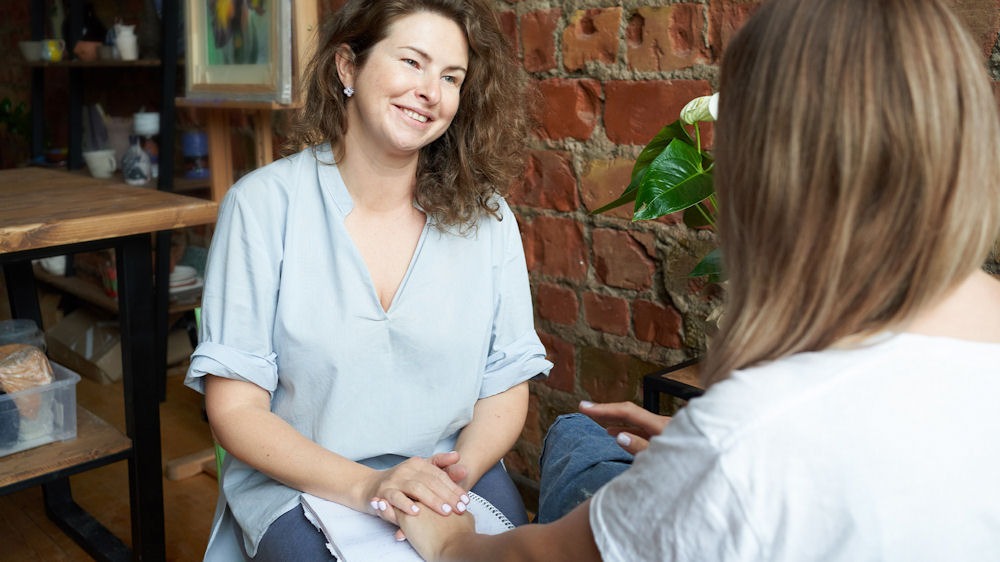International Overdose Awareness Day (IOAD), observed annually on August 31, brings attention to the global overdose crisis and encourages open dialogue about addiction. With drug-related fatalities continuing to rise, this day serves as a call to action—urging communities to break the stigma and support those affected.
At Crestview Recovery, we recognize this day as an opportunity to honor the lives lost, uplift those in recovery, and advocate for education and treatment. Together, we can cultivate a more compassionate and informed approach to addressing addiction. Let’s continue to break the stigma and stand united in hope, healing, and support.
What is International Overdose Awareness Day?
International Overdose Awareness Day (IOAD) is the world’s most extensive campaign to end overdose, honor the lives lost, and support the families, friends, and communities left behind. What began in 2001 as a small initiative in Melbourne, Australia, has since grown into a global movement spanning over 40 countries.
While overdose deaths are often linked to opioids, IOAD highlights the broader crisis involving stimulants, benzodiazepine addiction, alcohol addiction, synthetic drugs like fentanyl, and polysubstance use. The goal is to raise awareness of how deeply addiction impacts individuals across all backgrounds—and to shift public understanding from punishment to prevention, treatment, and recovery.
“The war on drugs has killed more people than the drugs themselves. It’s time to stop criminalizing pain and start saving lives.”
— Dr. Gabor Maté, addiction expert and author
A significant aim of IOAD is to break the stigma that keeps people from seeking help. Many overdose deaths are preventable, but fear of judgment, criminalization, and isolation stops people from reaching out. IOAD promotes harm reduction strategies like naloxone distribution, safe consumption sites, and expanded access to treatment—tools proven to reduce overdose deaths.
When is International Overdose Awareness Day?

International Overdose Awareness Day is observed on August 31st each year. This date was chosen due to its proximity to National Recovery Month in the United States, a time when many advocacy and educational activities are focused on addiction recovery. The choice of date aligns with global efforts to increase awareness around overdose prevention and treatment and to emphasize the need for action to address the overdose epidemic worldwide.
On International Overdose Awareness Day (IOAD), individuals, families, and communities unite to remember those lost to overdose. Memorial events, such as candlelight vigils, public discussions, and social media campaigns, serve as platforms to honor their lives and raise awareness about the global overdose crisis. These gatherings offer an opportunity for individuals to share personal stories, express their grief, and underscore the pressing need for improved support systems.
IOAD also focuses on education and advocacy, with workshops, forums, and campaigns aimed at informing the public about overdose prevention and harm reduction. The day calls for stronger policies, increased access to treatment, and a decrease in the stigma surrounding addiction. Through united efforts, IOAD drives meaningful change by promoting awareness, expanding support systems, and urging investment in lifesaving solutions.
Addressing the Crisis and Overcoming Stigma

The overdose crisis has become a global public health emergency. Overdose deaths, particularly those involving opioids, have reached epidemic levels, and in the U.S. alone, over 100,000 individuals die annually from drug overdoses. While many of these deaths are preventable, stigma, limited treatment access, and inadequate public health responses continue to exacerbate the problem.
International Overdose Awareness Day plays a vital role in combating the stigma around addiction. Addiction is often misunderstood as a personal failure, rather than a complex medical condition that requires care and treatment. This stigma leads to social isolation, discrimination, and hesitancy to seek help.
By observing IOAD, we challenge these damaging misconceptions and encourage a shift in public perception, advocating for addiction to be recognized as a medical issue deserving of compassion and professional care. Education is crucial in reshaping societal views. Only through greater understanding can we build a society where those affected by addiction are met with empathy, not judgment.
What Can You Do to Raise Awareness?

While International Overdose Awareness Day is a time for communities and organizations to unite around the cause, individuals also play a crucial role in raising awareness and making a difference. Here are several ways you can help spread the message of hope and education:
Many cities and organizations host local events on IOAD, including memorial services, vigils, and informational sessions. These events provide a space for communities to come together, remember lost loved ones, and show support for those affected by addiction. Participating in such events sends a strong message that you are part of the movement to raise awareness and reduce stigma.
Use your social media platforms to spread the word about International Overdose Awareness Day. Share facts about overdose prevention, personal stories of those affected by overdose, and information about the resources available for people struggling with addiction. Use hashtags like #OverdoseAwarenessDay or #IOAD to increase visibility and help raise awareness globally.
Harm reduction programs play a vital role in reducing overdose deaths by providing safer alternatives for individuals struggling with addiction. These programs also offer life-saving resources. You can support these programs by donating to organizations that provide naloxone kits, safe consumption spaces, or needle exchange programs. Many organizations also offer educational resources that help communities better understand overdose prevention.
Advocacy is an essential part of the fight against the overdose epidemic. Reach out to your local lawmakers and encourage them to support policies that address the overdose crisis. This includes advocating for improved access to addiction treatment services and expanding harm reduction programs. Support increased funding for research into addiction and overdose prevention.
One of the most critical steps in raising awareness is education. Understanding overdose signs, substance use risks, and treatment options can significantly impact the lives of those struggling with addiction. Learn about addiction science, overdose prevention, and available resources, then share this knowledge to help others in your community.
Supporting individuals in recovery is another powerful way to raise awareness and make a meaningful impact. By offering encouragement, compassion, and understanding, you help break down stigma and show recovery is possible and worth striving for. Whether through volunteer work, mentorship, or listening, your support can be a beacon of hope for someone’s sobriety journey.
Signs of Overdose
 Recognizing the signs of an overdose can be lifesaving. While specific symptoms may vary depending on the substance involved, here are common signs to watch for:
Recognizing the signs of an overdose can be lifesaving. While specific symptoms may vary depending on the substance involved, here are common signs to watch for:
- Difficulty breathing or no breathing
- Unresponsiveness or unconsciousness
- Pinpoint pupils (especially in opioid overdose)
- Cold, clammy, or bluish skin (especially lips or fingertips)
- Seizures or convulsions
- Slow, irregular, or stopped heartbeat
- Confusion, disorientation, or strange behavior
- Nausea or vomiting
- Choking or gurgling sounds (a.k.a. “death rattle”)
- Extreme drowsiness or inability to stay awake
- Limp body or muscle weakness
- Chest pain or tightness
- Hallucinations or paranoia (more common with stimulant or hallucinogenic overdose)
If you suspect someone is experiencing an overdose, call emergency services immediately. If available, administer naloxone (Narcan)—especially in suspected opioid overdoses. Stay with the person until help arrives—every second counts.
Crestview Recovery Can Assist Those Struggling with Addiction
At Crestview Recovery, we believe raising awareness is important, but real support is key to overcoming addiction. Our facility offers inpatient programs and outpatient programs, counseling, group therapy, and family support to help individuals achieve long-term recovery.
We understand that addiction is a medical condition, not a moral failing. Our holistic approach addresses the physical, emotional, and psychological aspects of addiction in a compassionate, non-judgmental environment. Our experienced team provides personalized care to help individuals reclaim their lives and navigate their recovery journey effectively.
By partnering with treatment centers like ours, we can help break the cycle of addiction and challenge the stigma that prevents many from seeking help. On International Overdose Awareness Day and every day, we want to remind everyone that with the right support, recovery is not just possible—it’s achievable.
Join the Fight Against the Overdose Crisis

Struggling with addiction? Take the first step toward recovery today for you or someone you care about. At Crestview Recovery, we are here to support you every step of the way, helping you heal, rebuild, and overcome the challenges of addiction.
On International Overdose Awareness Day, let’s unite, take action, and contribute to the global effort to end the overdose crisis. Recovery is possible, and we’re here to help you start your journey. Contact us now!
































